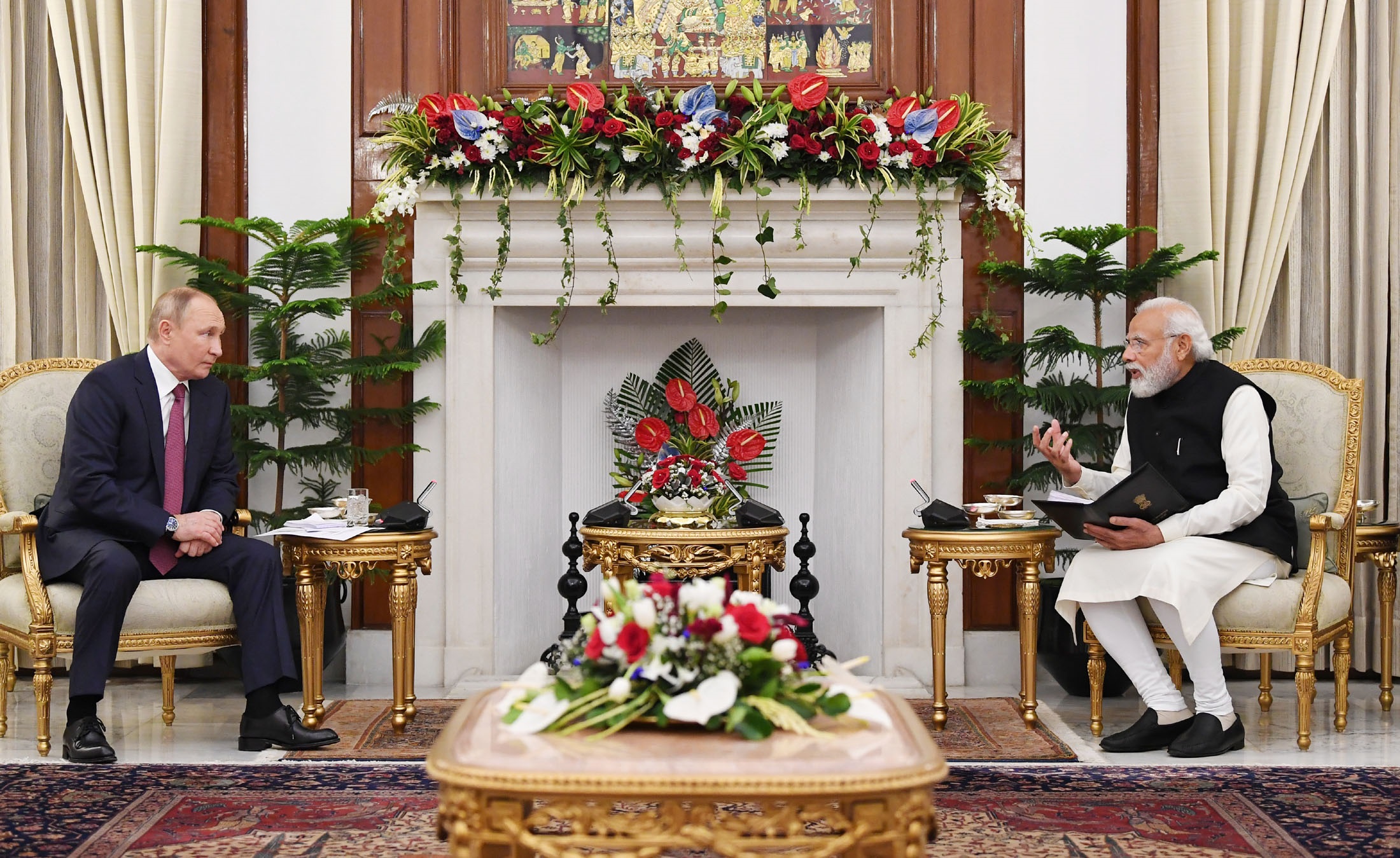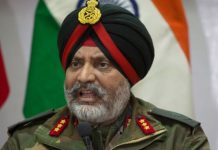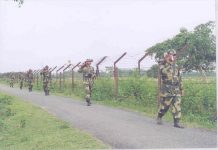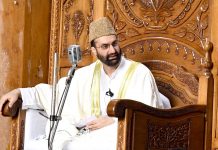
(A New Delhi-based independent columnist offers an in-depth study. The views expressed are his own.)
India appears to be repositioning herself in her new non-aligned avatar; the contemporary world is not bipolar, but a new triangular set of world forces in which she has to find her position. During the post World War-II years of the 20th century, India had promoted the non-aligned approach for surviving in the keen power competition between the power blocks led by USA and USSR (Union of Soviet Socialist Republics) respectively. The recent developments of the past two years, especially during the pandemic of Covid-19 accompanied by Chinese belligerence have led to the emergence of a triangular power play among USA, China and Russia, which India and other third world countries have to navigate.
India’s proximity to the Russian Federation could be traced to the USSR years, when India was liberally helped by USSR leadership in her industrialization and also in strategic affairs. In spite of the fragmentation of the USSR, India has retained close ties with the successor state, Russia, as well as with the new sovereign countries established after the break-up of USSR including Ukraine. There was a time, when the Russian Federation was seeking European identity, but its attempts were thwarted by the European Union under the dominance of the USA and Britain. Instead, they adopted both financial and strategic policies to wean away the erstwhile USSR allies to the western camp. It may be recalled that during the tenure of Mikhail Gorbachev, Russia was keen for setting up a mechanism for a “common European home” and a joint global leadership with the United States. Even Russia’s first president, Boris Yeltsin, had tried to fully integrate the country with Europe by joining NATO and forging a direct alliance with the United States. It is also possible that a powerful Europe could have diluted the USA’s status of the only Super Power on the earth. The olive branch from Russia, maybe for this reason, was rejected, and thus, it forced the Russian president Vladimir Putin to regain the support of the old USSR allies and the republics from Eastern Europe to Eurasia, which were once the part of the USSR.
Apart from the impact of the deadly coronavirus on the mankind in 2020, the year is also to be remembered for the final Chinese epitaph scripted on the vibrant democracy of Hong Kong. A solemn promise was given by the predecessors of the present Chinese President, Xi Jinping, that China would allow ‘one nation two systems’ for next 50 years after it gets the territory from Britain. However, in a bid to assert a Super Power status, China dumped its solemn commitment to the dustbin of history. Within a year of his inauguration in the White House, US President Joe Biden had to honour the commitment of his predecessor, Donald Trump, to pack up from Afghanistan. The American forces were withdrawn and the democratic regime prompted by the western powers was allowed to wither away on August 15, 2020 without offering any resistance to the Taliban forces. This humiliation of the US-led western powers, perhaps, has prompted both China and Russia to flex their muscles on the borders of Taiwan and Ukraine respectively. Biden’s bid to avert further humiliation is being seen in the recently held two virtual summits, he has had with Xi Jinping and Putin.
For India, the most interesting event during this high-power game on the world’s chessboard perhaps was Putin’s five-hour visit to New Delhi. It was scheduled just a day before his virtual meeting with Biden on December 8, 2021. During his brief sojourn in India, he also set the agenda for the crucial ‘substantial and meaningful’ strategic dialogues between the Russian defence minister and foreign minister, Sergey Shoygu and Sergey Lavrov, with their Indian counterparts, Rajnath Singh and S. Jaishanker respectively. Thus, with formidable Russian assurances, India is now poised to relive in a non-aligned environment, while the three formidable world powers, USA, China and Russia try to work out their respective zones of influences.
Prime Minister Narendra Modi’s observation on Putin’s visit as the reaffirmation of the “Special and Privileged Strategic Partnership” between the two countries also reminds the people about his visit to Vladivostok, which is called Yongmingcheng in the Chinese. A few years ago, Modi had attended the plenary session of the 5th Eastern Economic Forum in this far-east town of Russia, where he had extended one billion USD credit line for the development of the region. Interestingly, China has so far not made any official claim on this region, but in social media and debates, Chinese maps from the Yuan dynasty during 1271-1368 are being often quoted. The present city was founded in 1860 as a Russian military outpost. In 1872, the main Russian naval base on the Pacific Ocean was transferred to it. It was ceded by China to Russia as a result of the Treaty of Aigun of 1858 and the Treaty of Peking of 1860.
Biden’s Peace Efforts
Biden’s interactions with Putin and Xi Jinping are an effort to avoid wars in Europe as well as in Asia. It is possible that the American exit from Afghanistan might have emboldened both Russia and China to annex Ukraine and Taiwan respectively. Russia and China may not annex them immediately, but their flexing of muscles might destabilise the targeted countries leading to their final collapse, thus paving the way for their final merger with Russia and China.
With a Russian peace initiative that it has no intention to invade Ukraine, Putin has been able to present himself as a symbol of peace. On the other hand, Biden could not muster adequate support from his European allies to counter the Russian forces by a joint military action by NATO forces. He could only warn Putin of severe sanctions, if his forces ‘invade’ Ukraine. Similar warning was given to Xi JInping, if the Chinese army occupies Taiwan by force. Meanwhile, Putin must be admired for keeping the situation under control on the Ukrainian borders. He has already been empowered by the Federal Council, the upper house of the Russian Parliament, to deploy forces or if need be to send armies inside Ukraine. He has so far refrained to accord any diplomatic recognition to the separatists of Ukraine; especially in Donetsk and Luhansk, Dnipropetrovsk, Kharkiv, Kherson, Mykolaiv, Odessa and Zaporizhia, where they are well-entrenched.
The coming months in next year will be crucial for the American strategists in the Indo-Pacific region. Since Russia is keen that India should not antagonize China by taking bigger role in the US-sponsored QUAD or QSD, an alliance comprising USA, India, Japan and Australia. The world will keenly be watching the Indian response to this suggestion. The Chinese have repeatedly disapproved QUAD, because it is being considered a counter-measure to the growing clout of China in the region.
India’s Elephantine Memory
It is often stated that elephants never forget; maybe, it is true about India too. Indians are known for their elephantine memory. Indians even remember their ancient ties with China, which they wish to blossom in the contemporary world. The archaeological finds such as the etched carnelian beads of Indus valley finds indicating common India-China heritage and their common roots to their respective rich civilizations. They had their roots in Western Zhou, Spring and Autumn period, and these were furthered during cultural exchanges, when Han and Jing dynasties ruled China.
Even in recent history, it was the timely Chinese help of enriched Uranium that had enabled India to keep her atomic reactors critical following the sanctioned imposed on her following the Pokhran-II nuclear blasts in 1998. Earlier, China had refused to attack India during the 1971 Bangladesh War despite repeated calls from the then US President, Richard Nixon and his security advisor, Henry Kissinger. The declassified White House records reveal that how President Richard Nixon was pleading with China to ”menace” India; and even had sent its Seventh Fleet with nuclear bombs in the Bay of Bengal.
A new triangular super power system comprising USA, China and Russia is taking shape in the contemporary world. India has to reposition her new strategic non-aligned role as the symbol of the developing world and voice of the mankind and peace.












